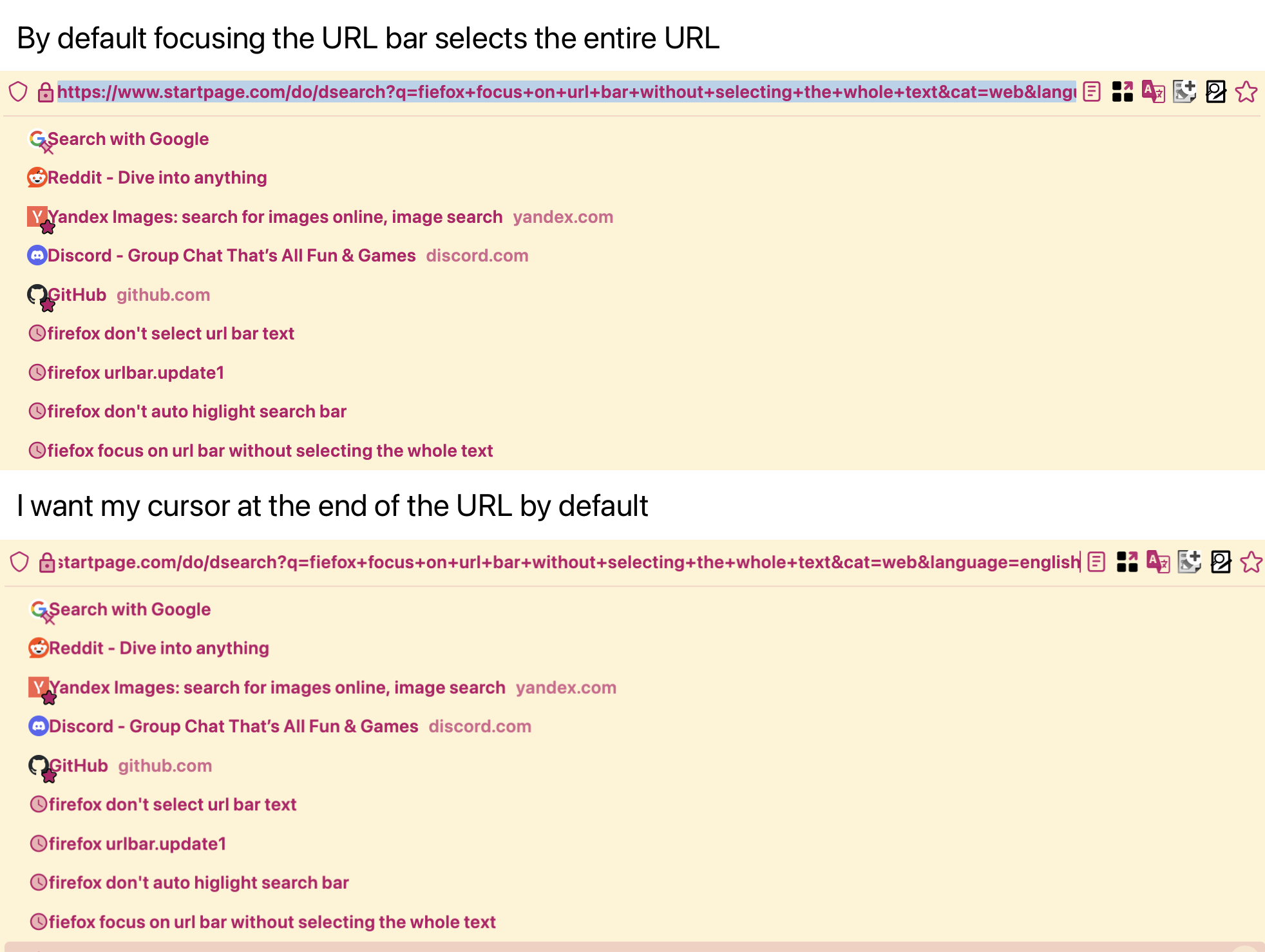Well I could do a key macro, for instance make CMD L do CMD L then right arrow.
TheTwelveYearOld
No way in hell would Proton make a Chromium-based browser, the only way that would not be hypocritical is if they fully open sourced it (and could be compiled yourself), and maintained their own fork completely devoid of Google tracking and telemetry.
Right now I don't think Proton would do much better than existing options. There are browsers on different ends of the privacy to convenience spectrum (and these are all Gecko based):
- Firefox: decent privacy by default without changing any settings
- Librewolf: Firefox but with hardened settings for privacy
- Mullvad Browser: Almost the same as Tor but not on the Tor network, which is admittedly slow
- Tor: Uses the Tor Network and by default very hardened for Privacy but makes lots of convenience and QoL tradeoffs, including letterboxing to common browser resolutions.
Wow its that bad?
The only reason Mozilla still exists is because Google needs them to so Chrome can’t be a complete monopoly.
Yep this is exactly what I meant. Maybe I should've made that clear.
Yeah, ok. Badger badger mushroom mushroom. My spoon is too big, my anus is bleeding. Charlieeee, the magical leoplurodon charlieeee.
Can you explain this?
I installed the app from FDroid and it does in fact have on-device blocklists.
I did a search and found this comment, https://reddit.com/r/rethinkdns/comments/1f7ydjo/git_vs_fdroid_google_play_app_version/
After
v055b, we hit numerous bugs (and unbelievably difficult ones) in our WireGuard integration. Releasedv055cand subsequent versions to fix the most annoying bugs among them.We paused Play Store builds at
v055ebecause each new version since has had its own glaringly annoying bugs (that were of course fixed in the subsequent versions). Why? Play Store brings in the most number of Rethink users (per our estimate), and we decided to halt publishing there until we can figure out how to stablize Rethink's feature-set affected by WireGuard.Pausing roll-out like this is a one-off.
Typically, you can expect all flavours (GitHub / Website / Play Store & F-Droid) to be at the same version.
If you're feeling particularly adventurous: You can temporairly seamlessly update (without having to reinstall) to the GitHub / Website version if you're currently using Rethink installed from the Play Store. And then later, when Play Store catches up, update from Play Store again.
I'm actually really glad u showed me this, MUCH more convenient than using adb!
Are there actually Windows users that say Linux is too complicated but then jump through hoops with registry even CMD prompt?!
I'm not micromanage it, that may be a privacy tradeoff i make for convenience. I want to see what I can do without constant maintenance.
Can you kindly tell me the difference between a leak and a breach?


The browser in the vid is iOS Safari